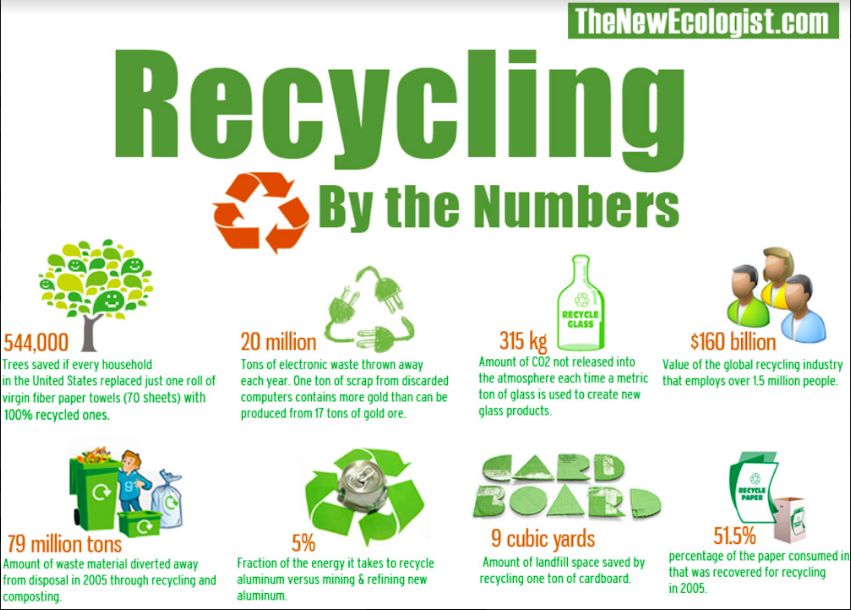Recycling industry strives to educate
October 3, 2018
The recycling industry is treading in dangerous water because Americans, in general, don’t know how to recycle properly, according to Waste Management’s statistics.
Two employees from Waste Management, Simpson’s waste management company, spoke to about 20 students at a recycling forum on Sept. 26 in Jordan Lecture Hall. They discussed the struggling recycling industry, how to recycle correctly and how Americans can improve.
The fundamental problem in the industry is that there is more supply than demand, Jacki Burn, account manager at Waste Management, said.
The United States relied on exporting recyclables to China until the beginning of the year when China imposed its ‘National Sword’ policy. The strict regulations forced the U.S. to halt virtually all recycling exportation to China, Burn said.
Since 1992, China imported about 45 percent of the world’s plastic waste, according to a study in “Science Advances.” Without them, waste management companies are scrambling for a solution.
The cause of the ban was high contamination levels.
“It’s mainly on us,” Kristen Giudicessi, major account representative at Waste Management, said. “In general, Americans weren’t recycling correctly and so it got to a point to where we are no longer allowed to depend on China.”
The No. 1 source of contamination is plastic bags, Giudicessi said. Plastic bags aren’t recyclable in single-stream recycling, which is the service Simpson utilizes.
They can contaminate an entire load or shut down a recycling plant. This also means recyclables can’t be taken to dumpsters in plastic bags, which is a common problem, Burn said.
Not only is it a national issue, but it’s prevalent at Simpson. According to junior Maggie Flowers, former president of Sustainability Club, students have shown concerns in the past about recycling not getting hauled from dumpsters. But this reason was because students were not recycling correctly. The recycling was in plastic bags, which Waste Management can’t accept.
Sophomore Amron Born admitted that she unknowingly contributed to the problem.
“I didn’t know that you’re not supposed to put your recycling in plastic bags. We do that all the time at home,” she said.
People want to be conscientious recyclers, but they aren’t always educated enough, Giudicessi said. Because of this, participation rates in recycling have increased but so has contamination.
About one in four items placed in recycling containers aren’t recyclable, according to Waste Management.
The other top contaminators are food waste and tangled items such as hoses, rope and wire, Giudicessi said.
Even the material that’s recycled correctly is difficult to dispose of because of China’s importation ban. The value of recycling has decreased and mills are overrun with materials. Waste Management pays mills to take commodities like glass and paper because they don’t have value, Giudicessi said.
But there is hope for the industry. The markets will turn around if contamination rates improve, Giudicessi said.
The main way to promote change is through education, Burn and Giudicessi agreed, which is something Simpson’s Sustainability Club hopes to achieve.
“I would say overall Simpson is not great at recycling, but that’s something the club wants to strive toward,” Flowers said.
The club posts signs near recycling areas to help people understand what’s recyclable. Recycling bins are scattered throughout housing and academic buildings. Recycling dumpsters are near residential areas, which are distinguishable by their yellow lids.
Waste Management has three basic rules for anyone who’s questioning what’s recyclable.
First, recycle all empty plastic bottles, cans, paper and cardboard.
Keep food and liquid out of recycling.
And empty recyclables directly into the dumpster. Plastic bags can be returned to a grocer.
“I think starting now is really important because waste is only going to continue piling up in landfills,” Flowers said.
She said there’s a mentality of, “Yes it’s an issue, but we don’t necessarily need to start tackling it now.”
If Americans educate themselves on proper recycling, the industry may take a turn for the better.







